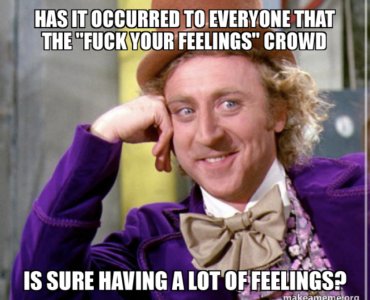- MBTI
- ENFP
- Enneagram
- 947 sx/sp
When you’re a wee lad and your E5 INTP mom tells you that you’re intellectualizing things, that cuts hard and deep, yo.It's difficult to know when another person is making a fair and legitimate critique in this regard sometimes.
Easily dismissible for INFJs who's professional business is itself overthinking.
Somebody's gotta be at one end of the spectrum and it's surely Ni users.
Ruff,
Ian

